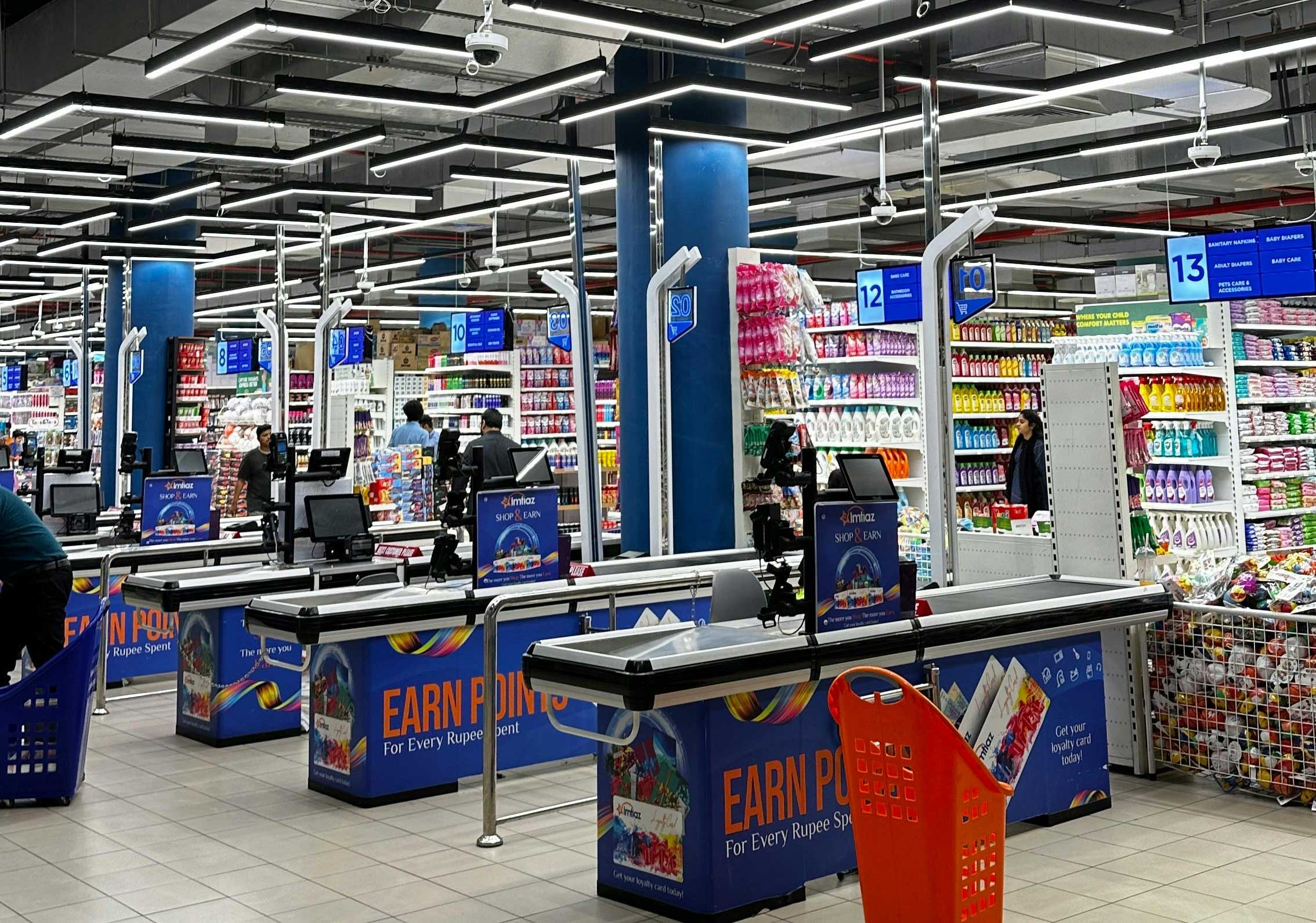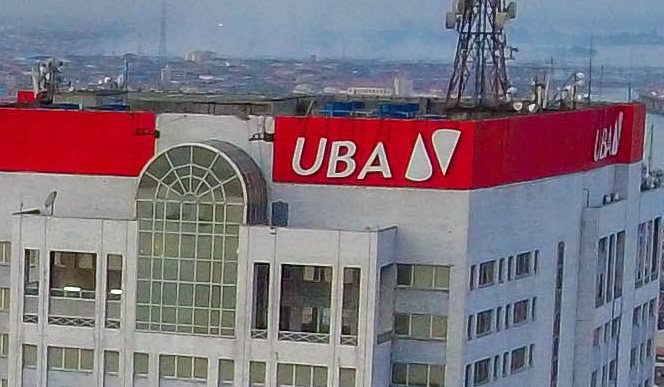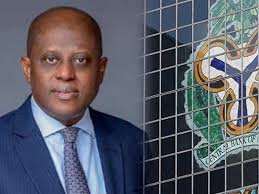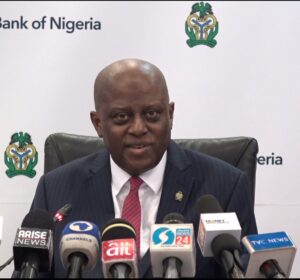Business
Future of AI in E-commerce: How Big Players Transform Shopping Experience

The e-commerce landscape is evolving rapidly, and at the forefront of this transformation is artificial intelligence (AI). From personalized shopping experiences to efficient inventory management, AI is revolutionizing how online retailers operate and engage with customers. In this article, we’ll explore the future of AI in e-commerce and how it promises to reshape the industry. Let’s dive into the exciting world of AI and discover what the future holds for e-commerce.
Introduction
In the competitive world of e-commerce, staying ahead of the curve is crucial. AI is not just a buzzword; it’s a powerful tool that is transforming every aspect of online shopping. Whether it’s enhancing customer service, personalizing user experiences, or optimizing logistics, AI is set to redefine the future of e-commerce. Let’s explore how AI is driving this change and what we can expect in the coming years.
Personalized Shopping Experiences
Imagine walking into a store where every product displayed is something you’ve been looking for or might like. AI is making this possible in the digital realm. Through sophisticated algorithms and data analysis, AI can predict customer preferences and offer personalized recommendations.
- Case in Point: Netflix’s recommendation engine, though primarily for entertainment, is a great example of how AI can personalize experiences based on user behavior. In e-commerce, Amazon uses similar AI technology to suggest products you’re likely to buy based on your past purchases and browsing history.
This level of personalization enhances customer satisfaction and increases the likelihood of repeat purchases.
Enhanced Customer Service with AI
Customer service is a critical component of any e-commerce business. With AI-powered chatbots and virtual assistants, businesses can provide 24/7 support, ensuring that customers receive timely assistance regardless of the hour.
- Case Study: H&M’s chatbot on their website assists customers with product searches, order tracking, and even style recommendations. This not only improves the shopping experience but also frees up human agents to handle more complex inquiries.
Future advancements in natural language processing (NLP) will make these interactions even more seamless and human-like.
Efficient Inventory Management
Inventory management can be a daunting task, especially for large e-commerce businesses. AI helps in predicting demand, managing stock levels, and optimizing supply chains. By analyzing historical sales data, current market trends, and other variables, AI can forecast demand more accurately.
- Example: Zara uses AI to manage its inventory effectively. The AI system predicts trends and ensures that the right amount of stock is available at the right time, reducing both overstock and stockouts.
This leads to a more efficient supply chain and better resource allocation.
Fraud Detection and Prevention
Security is a major concern in e-commerce. AI plays a pivotal role in detecting and preventing fraudulent activities. By analyzing patterns and identifying anomalies in transaction data, AI can flag potential frauds in real-time.
- Insight: PayPal uses machine learning algorithms to analyze millions of transactions and detect fraudulent activities. This helps in safeguarding customer data and maintaining trust in the platform.
As AI technologies advance, we can expect even more robust security measures in e-commerce.
Visual and Voice Search
The way customers search for products online is changing. AI-powered visual and voice search technologies are making it easier for customers to find exactly what they’re looking for.
- Future Outlook: Pinterest’s visual search tool allows users to search for products using images. Similarly, Google Lens enables users to snap a picture and find similar products online. On the voice search front, Amazon’s Alexa and Google Assistant are becoming popular tools for shopping.
These innovations are making the shopping experience more intuitive and user-friendly.
Sustainability and AI
Sustainability is becoming a key focus for many e-commerce businesses. AI can help in optimizing logistics to reduce carbon footprints, managing sustainable supply chains, and even encouraging eco-friendly purchasing behaviors among consumers.
- Example: Companies like Patagonia are leveraging AI to track and reduce their environmental impact. AI helps in optimizing shipping routes and reducing waste, contributing to a more sustainable business model.
The Road Ahead
The future of AI in e-commerce is bright and full of possibilities. As technology continues to advance, we can expect AI to play an even more integral role in shaping the shopping experience. Here are a few trends to watch out for:
- Hyper-Personalization: With more data and advanced algorithms, AI will provide even more personalized shopping experiences.
- Augmented Reality (AR): AI combined with AR will allow customers to virtually try on products before purchasing.
- Predictive Analytics: Businesses will leverage AI to predict market trends and customer behaviors with greater accuracy.
AI is undoubtedly the future of e-commerce. Its ability to personalize experiences, enhance customer service, manage inventory, detect fraud, and promote sustainability makes it an invaluable asset for online retailers. By embracing AI, e-commerce businesses can stay ahead of the curve, offering their customers a seamless, personalized, and secure shopping experience.
For more insights on AI in e-commerce, check out these resources:
You may like
-
Naira Appreciates Against Dollar Amid Increased FX Supply
-
PMS Pricing: PETROAN Calls for Patience as NNPCL Prepares Official Announcement
-
Kaduna refinery to be ready by the end of year 2024 – KRPC MD Sogungun
-
“Affordable Food for All: Muslim Scholars Open Market of Convenience in Lagos
-
Again, Naira gains massively against the US Dollars
-
HP Wolf Security Launches Advanced Physical Cyberattack Protection for Business Introducing HP Enterprise Security
-
Naira gains massively against the US Dollars
-
Naira gains significantly against US dollar
-
Apple rolls out AI features across devices
-
No deadline for the expiration of old notes – CBN
-
99% of wealthy Nigerians evade taxes as millions go hungry—Report
-
Naira Weakens Further Against Dollar
Business
Tax Reform Bills scales second reading in Senate

The Senate has passed for second reading fours bills designed to reform Nigeria’s tax system.
This followed the presentation of the general principles of the bills by the Senate Leader, Opeyemi Bamidele (APC-Ekiti), during plenary on Thursday.
The four bills, which were first read on Oct. 30, are:o Joint Revenue Board of Nigeria Establishment Bill, 2024; Nigeria Revenue Service Establishment Bill, 2024; Nigeria Tax Administration Bill, 2024 and the Nigeria Tax Bill, 2024.
Leading the debate on the general principles of the bills, Opeyemi said
that they represented a significant move toward overhauling the country’s tax system.
He said that the bills were aimed at simplifying the tax landscape, reducing the burden on small business and streamlining how taxes would be collected.
According to him, the four bills seek to ensure uniformity in tax revenue administration in the country, in accordance with the provisions of the constitution and eliminate the incidence of double taxation across the country.
He said that the bills also sought to deploy taxation as a tool for encouraging private sector investments in critical industries and boosting individuals’ disposable incomes through targetted tax exemptions, as captured in the various bills.
“In the area of tax exemptions, there is a proposal to exempt small business operators, while those with annual turnover of N50 million or less are equally exempted from payment of taxes.
“Similarly, there is a reduction in company’s income tax from the current 30 per cent to 25 per cent by 2026.
“As part of deliberate attempt to curtail incidence of double taxation and multiplicity of taxes and levies, multiple taxes hitherto paid by companies under various tax heads namely: 2.5 per cent education tax, 0.25 per cent NASENI tax have been harmonised into a development levy of two per cent.
“This will be applied by 2030 to fund the newly-established student loan scheme which will benefit many Nigerian youths.
” Unlike like what is obtainable under the existing tax regime whereby the Federal Government takes a lion share of VAT revenues, it is proposed that the sharing formula should allow state governments to share 55 per cent of VAT revenue from the current 15 per cent to 10 per cent sharing formula,” he said.
He, however, said local governments share of VAT revenue remained unaffected.
“Relatedly, basic items consumed by Nigerian households, such as food items, medical services and pharmaceuticals, educational fees, electricity, etc. are exempted from VAT.
“Again, as part of efforts to ease the administration of income taxes and levies across the federation, there is a reasonable effort made to consolidate core tax statutes and related tax legislations,” he said.
The senator said that the bills contained innovative and people-oriented proposals as part of government’s deliberate fiscal and tax reform measures.
He said that the bills were meant to cushion the effects of the ongoing broader economic policies, such as the removal of subsidy on petroleum products.
Opeyemi said that the innovations were also tailored toward implementing cost-reflective electricity tariffs in the power sector.
He urged the lawmakers to see the bills as part of the required legislative intervention to support the ongoing fiscal and tax reform measures needed to reposition the Nigerian economy for growth and productivity.
“These bills should be considered with great sense of patriotism and exercise of the powers of the National Assembly under Section 59 of the 1999 Constitution regarding imposition of taxes.
“I, therefore, urge my distinguished colleagues to support the bills for second reading.
Contributing, Sen. Seriake Dickson (PDP-Bayelsa) lauded the bills, saying that they would entrench the much-canvassed fiscal federalism.
However, Sen.Ali Ndume (APC-Borno) said although he was not against reforms and tax reforms in Nigeria, he, however, said that the timing of the bills was the issue.
Ndume said that the issue of derivation proposed in the bills was contradictory, stressing that the constitution needed to be amended for some of the proposals in the bills to sail through.
He said that in inline with the positions of the governors and traditional rulers, the bills should be withdrawn for further consultations.
Ndume specifically said that the issue of VAT and derivation should be addressed, adding that senate should consult first before further legislative inputs could be made on the bills.
However, Senate Chief Whip, Sen. Mohammed Monguno (APC-Borno), vehemently disagreed with Ndume, saying that his position negated the senate rule on processes of lawmaking.
He said Section 60 of 1999 Constitution, as amended, empowered the senate to regulate its procedure.
According to Monguno, the process of law-making, as stated in the senate’s rule, was unambiguous, nothing that after second reading, the bill will be transmitted for public hearing, where Nigerians of all groups will be free to make their inputs on the bills.
The senator said that Ndume’s suggestion for senate to withdraw the bills was foreign to legislative process, describing the suggestion as an academic exercise that was not worthy of legislative consideration.
According to him, the bills are noble and pro-people, as it will reduce the tax burden on Nigerians.
President of the Senate, Godswill Akpabio, after the reading of the bills for the second time, said all concerned stakeholders, should be invited at the public hearing to make their inputs before final clause-by-clause consideration by the senate.
He consequently referred the bills to Senate Committee on Finance for further legislative inputs, with a directive to return back to plenary in six weeks.
Business
UBA to begin full banking operations in France

The United Bank for Africa has signed a deal to commence full banking operations in France.
In a statement late Thursday, the banking group said the landmark business cooperation agreement with the French Finance Minister, Antoine Armand, was part of President Bola Tinubu’s state visit to France.
During the visit, the Chairman of UBA Group, Tony Elumelu, in the presence of Tinubu and the President of France, Emmanuel Macron, signed the agreement indicative of support by the French Government for the development of UBA’s full banking operations in France.
Speaking at the signing ceremony, Elumelu said, “This partnership reinforces our commitment to seamless international banking services for our customers, not just across the 11 Francophone African countries we serve, but Africa as a whole and French and European customers transacting with Africa.
“Expanding into France is a natural progression, with Paris serving as our European Union hub as we continue to bring Africa and the world together through innovative financial solutions. Paris will join London, New York, and Dubai as a critical component of our unique global network.”Related News
With this agreement, UBA joins tier-1 banks in Nigeria, running with a banking presence in France.
Tinubu arrived in France on Thursday for a two-day state visit, with both sides looking to deepen their economic and diplomatic ties.
It is the first official state visit to Paris by a Nigerian leader in over two decades.
Macron welcomed his counterpart with a warm greeting in Nigerian Pidgin English, stressing the cultural connection between the two leaders.
“Na big honour for France to welcome you for dis state visit,” he wrote on social media.
Business
CBN sets new guidelines for FX trading

The Central Bank of Nigeria (CBN) on Wednesday announced new guidelines for foreign exchange (FX) trading through the Electronic Foreign Exchange Matching System (EFEMS).
CBN’s director of the Financial Markets Department, Omolara Duke, made this in a statement, stating that the new guidelines aim to ensure transparency, fairness, and compliance in FX trading.
The minimum tradable amount is set at $100,000; CBN disclosed this in a tweet, adding it will be effective December 2, 2024.
“The CBN transitions FX trading to Bloomberg BMatch, promising enhanced transparency, fair pricing and operational efficiency, effective December 2, 2024,” the apex bank tweeted.
CBN also stated that the Bloomberg BMatch platform will boost market integrity, enhance price discovery, and ensure seamless FX trading among participants.
General Provisions
1. These guidelines regulate the operations of interbank FX trading via the Electronic Foreign Exchange Matching System (EFEMS),
2. The purpose is to ensure transparent, fair, and efficient FX trading, minimising counterparty risk and ensuring compliance with Central Bank of Nigeria (CBN) regulations. and greater
3. The CBN has approved the Bloomberg BMatch as the designated platform to support the EFEMS for interbank trading. advised to
4. All market participants are required to comply strictly with these guidelines and any amendments as may be issued by the CBN from time to time.
Trading and Operational Requirements
1 Trading hours shall be from 09:00 hrs to 16:00 hrs WAT on business days.
2 All unmatched orders will be cleared at the market’s close and may be resubmitted on the
following business day.
3 Quotes on EFEMS will remain anonymous until matched. Once matched, counterparty details will be revealed for settlement purposes.
4 All trades consummated on EFEMS are binding, unless canceled by mutual agreement of both parties with written approval from the CBN.
5 The minimum tradable amount is US$100,000.00, with incremental clip sizes of US$50,000.00.
6 Participants must set credit and settlement limits for other counterparties in the system.
Transactions exceeding these limits will not be executed.
7 Participants must have adequate credit and settlement limit set for the CBN as its counterparty bank.
8 Participants are required to comply with the Nigerian Foreign Exchange Code and other CBN regulations.
9 EFEMS shall be used exclusively for executing spot FX transactions involving the Nigerian Naira (NGN) against the United States Dollar (USD). Other currency pairs may be introduced upon the CBN’s directive.
10 Transactions on EFEMS must be settled through approved settlement systems, with participants
bearing responsibility for their obligations.
1 The platform provider must offer real-time support to address system issues. In the event of prolonged downtime, alternative trading protocols will be activated as prescribed by the CBN.
12 Any participant defaulting on settlement obligations will face penalties as determined by the CBN.
Governance and Data Reporting
1 The CBN shall monitor all transactions on EFEMS to ensure market integrity and transparency.
2 Participants must submit daily transaction reports only to the CBN, detailing trade volumes, counterparties, and settlement status. All whole/interbank trades conducted between Authorised Dealers and non-banks participants on telephone and other acceptable channels in the market must be confirmed on the RFQ and reported on EFEMS immediately. Any deal that falls outside the EFEMS parameters, such as same day or next day settlements delivery vs payment transactions where limits are exceeded and deals with non-standard amount should be booked via the RFQ functionality and uploaded automatically to the FX blotter not more than 10 minutes after the completion of the trade.
3 All trade data generated on EFEMS shall be owned by the CBN. The CBN reserves the right to publish aggregated or disaggregated data for market analysis, subject to confidentiality agreements.
4 The CBN reserves the right to review EFEMS operations, including participant activities and system efficiency, periodically.
5 Violations of these guidelines or other applicable regulations shall attract penalties, including suspension or revocation of EFEMS access rights.
Business
Naira appreciates against dollar despite CBN interest rate hike

Despite the announcement of an interest rate hike by the Central Bank of Nigeria (CBN) on Tuesday, the naira appreciated to N1, 659.44 against the US dollar.
Data from the Nigerian Autonomous Foreign Exchange Market (NAFEM) showed a N16.88 gain against the dollar from the N1, 675.62 it traded at on Monday.
A look at the parallel section of the foreign exchange market showed a gain of N5 for the naira against the dollar, trading at N1,750 compared to the N1,755 it traded at on Monday.
The naira, however, didn’t record any change in trade against the British pound on Tuesday as it still exchanged at Monday’s rate of N2,245 against the pound.
Also, the naira maintained N1,300 against the Canadian dollar but appreciated marginally against the Euro to trade at N1,840/€1 as against the previous day’s rate of N1,845/€1.
Business
CPPE raises concern over CBN’s MPR hike to 27.50%

The Centre for the Promotion of Private Enterprise (CPPE) has raised concerns over the Central Bank of Nigeria’s (CBN) sustained tightening of the Monetary Policy Rate (MPR), now at 27.50 per cent.
Dr Muda Yusuf, Chief Executive Officer of CPPE, stated in Lagos on Tuesday that the continued rate hikes by the Monetary Policy Committee (MPC) could further stifle economic growth.
NAN reports that the MPC of the CBN, during its 298th meeting, further raised the country’s interest rate to 27.50 per cent from 27.25 per cent.
It, however, retained the Cash Reserved Ratio (CRR) at 50 per cent for Deposit Money Banks and 16 per cent for merchant banks.
The committee also retained the Liquidity Ratio at 30 per cent, and also the Assymetric Corridor at +500/-100 basis points around the MPR.
“It is troubling that despite the declining growth performance of many critical sectors of the economy as evidenced in the third quarter GDP report, the MPC still continued its tightening stance.
“The GDP sectoral performance report also revealed a glaring disconnect between the financial services sector and the real economy,” he said.
He said that the financial services sector recorded a growth of 32 per cent while agriculture and manufacturing grew by 1.14 per cent and 0.92 per cent.
Yusuf said, “This disposition will deepen this distortions. Meanwhile strategic economic sectors such as agriculture, manufacturing and real estate recorded declines in growth in the third quarter.
“Air transport and textile remained in recession. These sectors need monetary and fiscal support, not a further tightening of monetary conditions.
The financial expert called on CBN to increase support for development finance institutions to address financing challenges caused by the sustained tight monetary policy regime.
Business
Breaking: CBN increases interest rate to 27.5%

The monetary policy committee (MPC) of the Central Bank of Nigeria (CBN) has raised the monetary policy rate (MPR), which benchmarks interest rates in the country to 27.50 percent — from 27.25 percent.
Olayemi Cardoso, CBN’s governor, announced the committee’s decision at a press conference on Tuesday after the panel’s 298th meeting in Abuja.
He said the committee increased the MPR by 25 basis points.

2025: How To Plan A Budget For The Upcoming Year

Ruud van Nistelrooy Opens Up on Hurtful Manchester United Exit Before Taking Leicester City Job

Obasanjo would have died under Abacha if not for me -Gowon

Why I don’t trust any public institution in Nigeria – Fisayo Soyombo

Minimum Wage: Cross Rivers Workers to embark on indefinite strike

Bayer Leverkusen Forward Victor Boniface Faces Possible Sanction for Reckless Driving Incident

Radda approves N70,000 minimum wage for Katsina workers

PH refinery has not commenced bulk sales – NNPC

CBN issues Dec. 1, ultimatum against banks, ATM delays

















